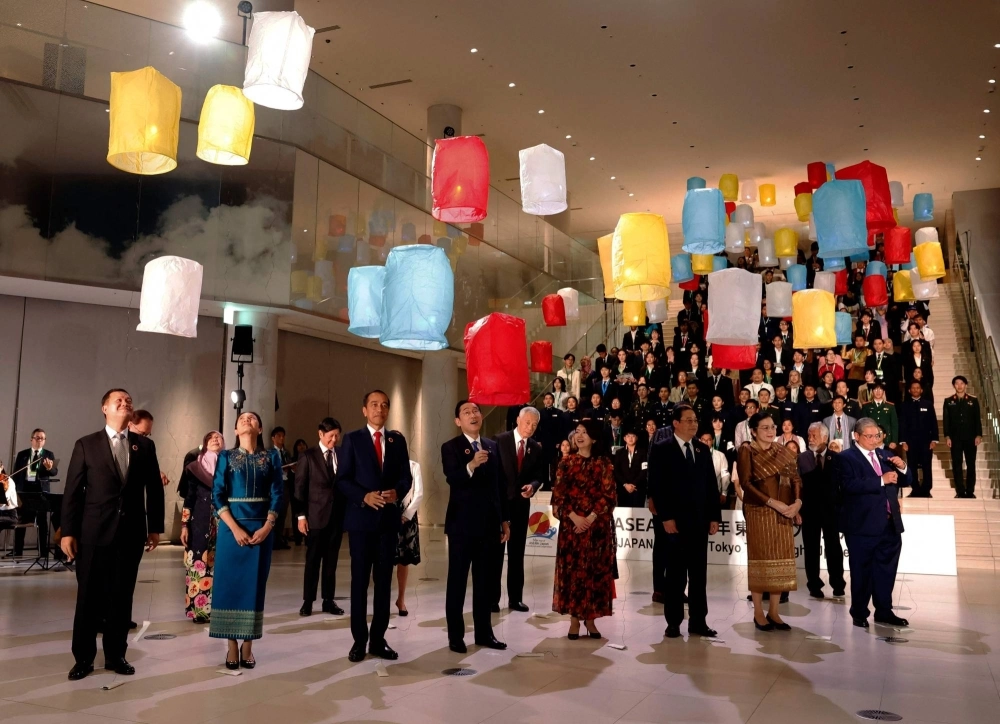Defense and security cooperation is set to play an increasingly important role in relations between Japan and the Association of Southeast Asian Nations amid growing regional tensions over territorial and maritime spats with China.
That’s one of the key takeaways of a Japan-ASEAN leaders summit held in Tokyo over the weekend, which saw the comprehensive strategic partners lay out a “new vision” for bilateral ties and launch a range of cooperation initiatives in the diplomatic, security, economic, cultural and social fields.
At the summit commemorating 50 years of bilateral relations, Tokyo and the 10-member bloc agreed to deepen security ties in areas such as capacity building, defense equipment and technology, as well as joint training and exercises, according to a statement issued Sunday.




















With your current subscription plan you can comment on stories. However, before writing your first comment, please create a display name in the Profile section of your subscriber account page.